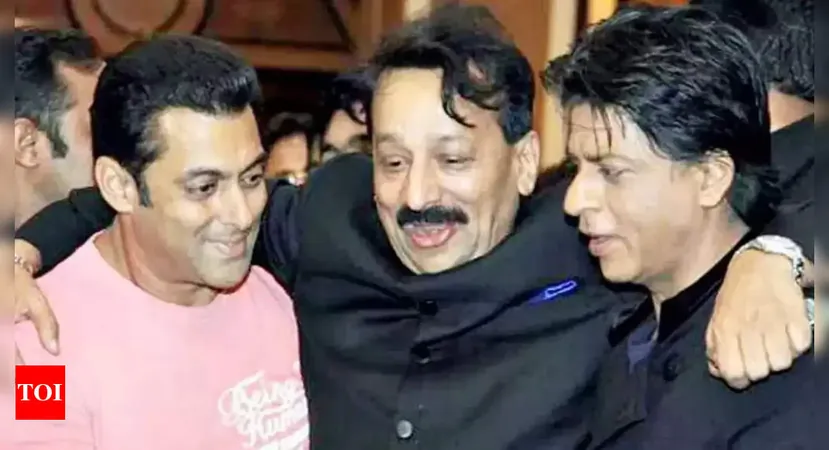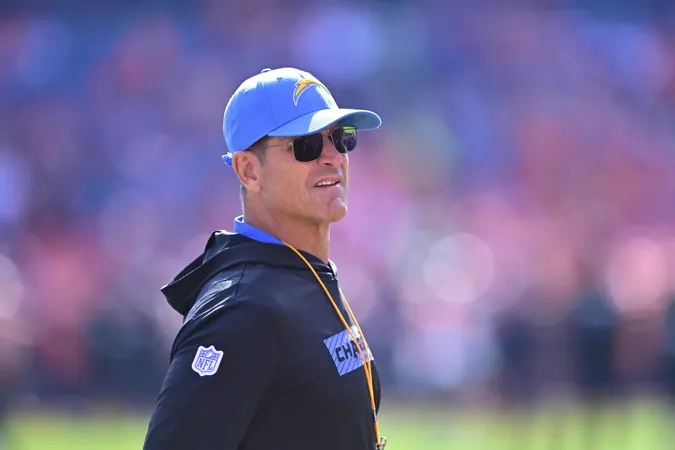
The Enduring Legacy of Baba Siddique: Mumbai’s Political Matchmaker
2024-10-14
Author: Jessica Wong
The Enduring Legacy of Baba Siddique: Mumbai’s Political Matchmaker
Baba Siddique, the former Maharashtra Minister, was not just a political figure; he was a cultural cornerstone within the intricate tapestry of Mumbai's political and Bollywood landscapes. Renowned for his extraordinary Iftar parties, Siddique had an unparalleled knack for bridging gaps between influential personalities, exemplified by his pivotal role in reconciling titans Salman Khan and Shah Rukh Khan in 2013 after a bitter five-year feud.
His passing in a shocking shooting incident has ignited conversations about his unprecedented influence, but it is also a reminder that true legacy goes beyond mere headlines. Siddique's long-standing affiliation with the Indian National Congress saw him serve as an MLA for three terms and take on significant roles, including serving as Minister of State, where he crafted policies that resonated across various sectors, from consumer protection to labor rights.
The impact of Siddique was vividly showcased in 2014 when he shared the stage with Bollywood superstar Salman Khan and then-Chief Minister Narendra Modi, emphasizing the importance of choosing the "best man" to lead. Salman Khan's heartfelt tribute upon Siddique's tragic demise was emblematic of their mutual respect, further cementing Siddique as a trusted figure across diverse social spheres.
Siddique's Iftar parties were more than just social gatherings; they were vital networking events that welcomed Mumbai's elite. It was during one of these gatherings that he orchestrated the historic reconciliation between Salman and Shah Rukh. Their feud had spiraled from a misunderstanding at a party in 2008 into a notorious rivalry. "They both wanted it. Allah shows the way. I had no role to play," Siddique famously downplayed his involvement, showcasing his humility amid his impactful role as a peacemaker.
Among Mumbai's political elite, Siddique was revered. The late Sunil Dutt regarded him as family, and he became a mentor to Dutt's daughter, Priya, who successfully contested for a Lok Sabha position. His legacy continues through family, with his son, Zeeshan, stepping into the political arena.
Siddique's political journey began in the late 1970s with the Indian National Congress, and he quickly climbed the ranks, holding various significant positions, including President of the Mumbai Youth Congress and a Municipal Councillor for the Mumbai Municipal Corporation. His tenure as MLA for Vandre (Bandra) West solidified his status as a political powerhouse, defending his seat with notable success through the years.
However, his later years in the Congress party were fraught with challenges. He candidly expressed feeling undervalued, comparing himself to "curry leaves used to enhance the taste of food." Disturbingly, his son claimed that junior aides of Rahul Gandhi had once fat-shamed him, heightening the sense of disillusionment that pervaded Siddique's political life.
Despite the weight of his contributions, Baba Siddique’s legacy remains somewhat obscured in the public consciousness. His capacity to weave harmony among opposing political factions and his prowess as a peacebroker made him an invaluable asset to Mumbai. As the city mourns his loss, it is crucial to reflect on the profound impact he had and the pivotal role he played in bridging Mumbai's diverse communities.
As Mumbai bids farewell to this towering figure, it’s clear that though he may be gone, the ripples of his influence will resonate in both politics and Bollywood for years to come. The story of Baba Siddique is not just an obituary; it is an enduring narrative of peace, reconciliation, and the intricate dance of power within one of India’s most vibrant cities.


 Brasil (PT)
Brasil (PT)
 Canada (EN)
Canada (EN)
 Chile (ES)
Chile (ES)
 España (ES)
España (ES)
 France (FR)
France (FR)
 Hong Kong (EN)
Hong Kong (EN)
 Italia (IT)
Italia (IT)
 日本 (JA)
日本 (JA)
 Magyarország (HU)
Magyarország (HU)
 Norge (NO)
Norge (NO)
 Polska (PL)
Polska (PL)
 Schweiz (DE)
Schweiz (DE)
 Singapore (EN)
Singapore (EN)
 Sverige (SV)
Sverige (SV)
 Suomi (FI)
Suomi (FI)
 Türkiye (TR)
Türkiye (TR)